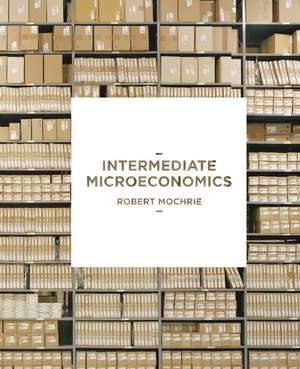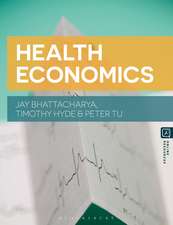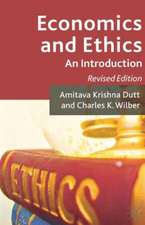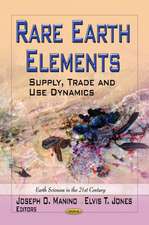Intermediate Microeconomics
Autor Robert Mochrieen Limba Engleză Paperback – 25 oct 2015
Preț: 454.23 lei
Preț vechi: 587.36 lei
-23% Nou
Puncte Express: 681
Preț estimativ în valută:
86.92€ • 92.94$ • 72.47£
86.92€ • 92.94$ • 72.47£
Carte disponibilă
Livrare economică 27 martie-10 aprilie
Preluare comenzi: 021 569.72.76
Specificații
ISBN-13: 9781137008442
ISBN-10: 113700844X
Pagini: 672
Ilustrații: 175 figures, 28 b/w tables
Dimensiuni: 189 x 189 x 30 mm
Greutate: 1.41 kg
Ediția:1st ed. 2015
Editura: Bloomsbury Publishing
Colecția Red Globe Press
Locul publicării:London, United Kingdom
ISBN-10: 113700844X
Pagini: 672
Ilustrații: 175 figures, 28 b/w tables
Dimensiuni: 189 x 189 x 30 mm
Greutate: 1.41 kg
Ediția:1st ed. 2015
Editura: Bloomsbury Publishing
Colecția Red Globe Press
Locul publicării:London, United Kingdom
Caracteristici
Adopts a problem-solving approach through the By yourself boxes to help students fully engage - Covers the standard theory and models, but also integrates exciting contemporary topics such as behavioural economics and game theory
Notă biografică
Nicholas Marsh is Fellow of the English Association and the author of many titles in the 'Analysing Texts' series, of which he is also the General Editor.
Cuprins
PART I: MARKETS IN CONTEXT 1. Key principles 2. Perfect markets PART II: RESOURCE ALLOCATION FOR PEOPLE 3. The budget set 4. Preferences 5. Utility functions 6. The most-preferred, affordable bundle 7. Demand functions 8. Price changes 9. The CES utility function PART III: RESOURCE ALLOCATION FOR FIRMS 10. Production 11. Cost functions 12. Costs and planning 13. Firm supply in perfect competition 14. Equilibrium in perfect competition PART IV: MARKET POWER 15. Monopoly 16. Price discrimination 17. Oligopoly 18. Game theory: concepts 19. Game theory: applications PART V: WELFARE 20. Exchange 21. Production and distribution 22. Externalities 23. Public goods PART VI: BEHAVIOUR 24. Personal choice 25. Inter-temporal choice 26. Choice and risk 27. Rationality and behaviour PART VII: APPLYING GAME THEORY 28. Games with imperfect information 29. Product differentiation 30. Auctions 31. Afterword.











